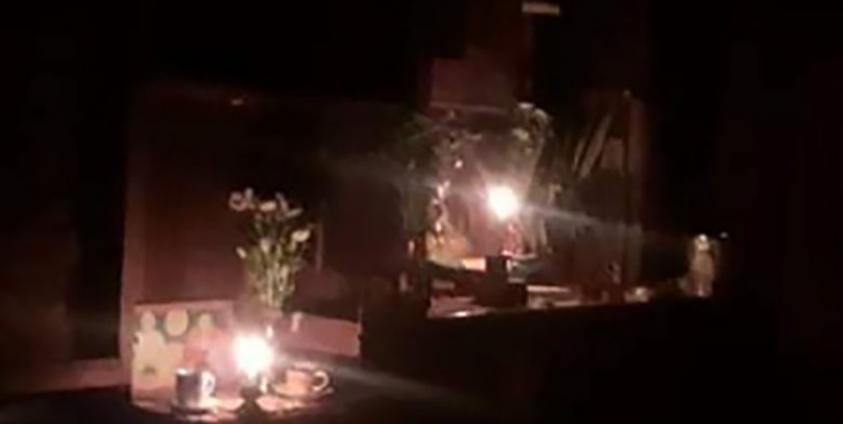The unreliable electricity supply in Karen State is causing alternative commodity prices to escalate to a level where residents are finding it hard to cope.
A resident of Kyondoe Town in Kawkreik Township told Karen News the increasing price of firewood, charcoal, and candles in Karen State has put a huge financial burden on local people. Some households are unable to afford to buy these essential household items.
The country’s electricity distribution has been reduced with frequent outages, forcing people to use firewood and charcoal for their cooking and candles for lighting.
A Kyondoe town resident confirmed many are now turning to candles for their lighting, but the costs of these basic items have soared.
“A pack of small candles, which used to cost 500 Kyats is now 1,000 kyats. Previously, a bag of charcoal was 2,000 kyats. Now it is 6,000 kyats. The cost of a bundle of firewood stays the same at 500 kyats, but the quantity is reduced by half. Even then, there are shortages and we cannot buy them anytime we want. We need to buy them when they are available and store them. Our living conditions are becoming difficult.”
Residents said that the electricity bills are collected regularly as before even though the respective departments did not notify the public in advance for power outages.
Ko Win Zaw, a Myawaddy resident, told Karen News it would be helpful if officials from the related department’s notify the people of electricity outages, so people could prepare themselves.
“The power can go off at any time. Sometimes it happens when people are cooking their rice and they have to throw away the uncooked rice. It would be helpful if the authorities notified the public of the exact power outages times, so we can plan for it.”
Of the seven townships in Karen State, only the Hpa-an urban areas had access to the electricity power grid under the previous Thein Sein government, and the urban areas of the other six townships had to rely on electricity provided at set times by generators. Under the National League for Democracy government from 2015 to 2022, electricity power grids were provided to the remaining urban areas of the six townships and about 300 villages in addition to the urban areas of the seven townships.
A village elder told Karen News power is now only available for two hours a day.
“We get electricity from 10 am to 12 pm. After that, electricity is cut off for the rest of the day. When we get electricity the next day, it is no longer like the previous day. Electricity is cut every day. Now it is getting worse, and we cannot do anything.”
Under the military junta rule, distribution of electricity has been reduced by more than half, not only in Karen State but also across the whole country. People are mainly relying on candles, inverters, battery boxes, solar, and generators for electricity and firewood, charcoal for cooking.
In the Thai-Burma border town of Myawaddy, several small-scale garment factory owners said that they are seeing losses in their business due to electricity outages. They said electricity cuts caused a delay in finishing their sewing orders.
A garment factory owner in Myawaddy told Karen News it is a struggle to keep their business running due to the power outages.
“We used to experience electricity cuts in Myawaddy before, but it’s worse now. In the past, the power cut didn’t last long, but now there are two to three power outages in a day and they last for several hours at a time. It is really hurting our business. We receive sewing orders from Thailand and we need to finish them within a scheduled time frame. We can’t run our machines when the electricity is out.”
The factory owner said that if they missed the set deadline, it impacts on future sewing orders as their clients will be reluctant to use them. Factory owners told Karen News, Myawaddy Town has over 200 small-scale garment factories and they are all in the same perilous position regarding the unreliable electricity supply.








